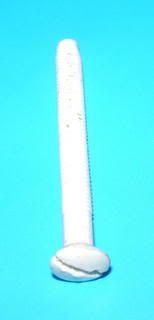Hi there y'all 
I'm replacing very tired plastic 2 gang switched sockets in the kitchen with smart brushed metal ones.......the existing sockets are mounted on plastic dry lining boxes. Is this OK - I'm thinking with a metal socket I'd have to earth each one to the box (if metal). Do I therefore need to replace the existing boxes with metal ones in order to do this??
Thanks VERY much!
I'm replacing very tired plastic 2 gang switched sockets in the kitchen with smart brushed metal ones.......the existing sockets are mounted on plastic dry lining boxes. Is this OK - I'm thinking with a metal socket I'd have to earth each one to the box (if metal). Do I therefore need to replace the existing boxes with metal ones in order to do this??
Thanks VERY much!




